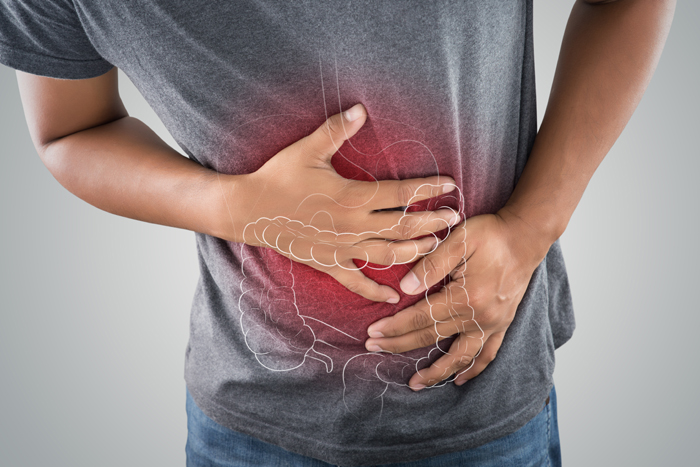Diarrhea Treatment in Chirag Enclave, Delhi
Introduction
After consuming unhygienic food that is not suitable for you upsets your stomach. It might lead to loose and watery stools that might be a result of Diarrhea. It can be acute or chronic depending upon the severity of infection. In some patients, it might last for a few days and needs no treatment. Visit a gastroenterologist near you after noticing the symptoms.
About Diarrhea
Stomach flu, intestinal infection, or irritable bowel syndrome due to bacterial or viral infection can cause Diarrhea. Other possible causes are dehydration or loss of body fluid, electrolytic balance, and kidney failure. While going on a vacation, you might suffer from Travelers Diarrhea due to a bacterial or viral infection. A gastroenterologist in Delhi can provide you the proper treatment for Diarrhea.

Types of Diarrhea
Based on intensity, Diarrhea is classified as:
- Acute Diarrhea – It remains loose, watery Diarrhea that lasts only for a couple of days.
- Persistent Diarrhea – It persists for nearly 2-4 weeks causing weakness, and hospitalization.
- Chronic Diarrhea – This Diarrhea can last for more than four weeks and causes severe damage to the body.
Symptoms of Diarrhea
There are various symptoms associated with Diarrhea such as:
- Frequent urge to evacuate your bowels
- Blood and mucus in the stools
- A large volume of watery stools
- Fever
- Nausea and vomiting
- Abdominal cramps
- Abdominal pain
- Bloating
- Dehydration
- Weight loss
Causes of Diarrhea
Various reasons might lead to Diarrhea:
- Viral gastroenteritis – Virus that infects your bowel
- Infection by bacteria, preformed toxins, and other pathogens
- Allergy and intolerance to food like lactose intolerance
- Medications
- Radiation therapy
- Poor absorption of food
- Stomach surgery and gall bladder removal surgery
- Digestive disorders like Crohn’s disease, ulcerative colitis, celiac disease, irritable bowel syndrome
- Antibiotics
When to see a doctor?
If you have persistent loose, watery bowels, dehydration, severe abdominal pain, and high fever, then you must visit a diarrhea specialist near you. A gastroenterologist near you will diagnose Diarrhea by a blood test, a stool test, and an imaging test.
Request an appointment at Apollo Spectra Hospitals, Chirag Enclave, Delhi.
Call 18605002244 to book an appointment.
Diagnosis of Diarrhea
Your doctor can determine the cause and presence of Diarrhea by following diagnosis techniques:
- Complete blood count helps to indicate the cause of Diarrhea
- Stool test - It helps to check for the presence of Bacteria, or parasites causing Diarrhea
- Imaging test - This checks for inflammation and structural abnormalities of the intestine
- Fasting test - It helps to determine the cause of food intolerance or allergy
- Breath test - It is conducted to check for lactose intolerance and bacterial overgrowth
- A colonoscopy inspects the entire colon for intestinal disease
- Sigmoidoscopy observes the rectum and descending colon to check for signs of intestinal diseases
Risk factors and complications associated with Diarrhea
One of the most common risks associated with Diarrhea is dehydration. Dehydration can lead to Diarrhea in children as well as adults.
Prevention of Diarrhea
There are various ways to prevent Diarrhea:
- To avoid travelers’ Diarrhea caused by viral or bacterial infection, you must take antibiotic treatment before leaving home.
- Drink bottled water, and eat cooked food only on vacation
- Get vaccinated against Rotavirus that is a common cause of Diarrhea
- Maintain hygienic conditions and store food properly
Remedies to prevent Diarrhea
Various home remedies can help you with Diarrhea like:
- Add semisolid and low-fiber food to your diet
- Drink plenty of water, broth, and juices
- Avoid consuming dairy products, fats, high-fiber food, and spicy food for a few days.
- Follow BRAT food (Banana, Rice, Apples, Toast)
- Consume probiotics to enhance the growth of healthy bacteria in your intestinal tract
Treatment for Diarrhea
There are various treatments available for Diarrhea depending upon the severity, degree of dehydration, medical history, age, and frequency.
- Antibiotics – Antibiotics can treat bacteria, viruses, and parasites responsible for Diarrhea.
- Replacement of fluids – You must consume fluids like water, juices, and broth that maintain a balance of electrolytes, potassium, sodium in your body. Pedialyte and ORS replace lost fluids from your body.
- You can consume Over-the-counter medications like Bismuth subsalicylate or loperamide.
Conclusion
If you suffer from Diarrhea for more than a couple of days, you must contact a gastroenterologist in Delhi. You might have symptoms including fever, vomiting, blood in stool, frequent stools, numbness, weight loss, etc. You must consume food products that can reduce the risk of Diarrhea.
Honey shortens the duration of Diarrhea caused by bacterial gastroenteritis due to its antibacterial properties.
You must avoid eating spicy food, dairy products, processed food, raw vegetables, fatty food, citrus fruits, corn, caffeinated and carbonated drinks to prevent Diarrhea.
Antibiotics change the balance of bacteria in the intestine, so the colon gets overrun by pathogenic bacteria leading to colitis and thus leading to Diarrhea.
No, Diarrhea is not fatal. In severe conditions, it can lead to complications that are associated with dehydration.


.svg)
.svg)
.svg)
.svg)









